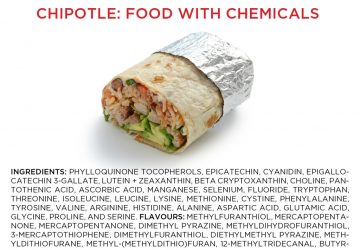 At least Michael Pollan is honest in his attempts to conjure up phony outrage to support his life’s work. As he wrote in The New York Times over the weekend:
At least Michael Pollan is honest in his attempts to conjure up phony outrage to support his life’s work. As he wrote in The New York Times over the weekend:
People like me throw the term [“food movement”] around loosely, partly because we sense the gathering of such a force, and partly (to be honest) to help wish it into being by sheer dint of repetition.
Pollan extolls the merits of the future of his dreams in a New York Times magazine piece supporting the wrongheaded Proposition 37 in California, aimed at giving a Golden State-styled scarlet letter to “GMO” products. Rather than focusing on the benefits of biotechnology and how it may help feed the world, Pollan hopes enough people will be frightened enough to follow his lead.
We’ve seen this before. When high fructose corn syrup was a bogeyman, companies decided to market “real sugar,” that is, cane or beet sugar, thinking that the change would increase sales. If Pollan’s “food movement” were a significant force, the change should have increased sales.
But it turns out that they were wrong — the products didn’t sell. Nielsen data show that brands marketing “high fructose corn syrup-free” products did no better, or sometimes worse, than before the switch.
Animal rights activists are now hemming and hawing over individual maternity pens and claiming that there is a popular uprising against them. But chances are, if you’re someone who wants to denigrate a safe and humane way to raise pigs, you’re probably not eating pork anyway. That’s certainly the case of the leadership of the Humane Society of the United States (not to be confused with your local animal shelter, which has no affiliation with the group). HSUS’s president and CEO, vice president for farm animal issues, and food policy director — to note only three — are vegans who consume no animal products at all. (Food Policy Director Matt Prescott is an alum of PETA’s vile “Holocaust on Your Plate” campaign, but that’s another story.)
Nonetheless, alarmists and activists like Pollan and HSUS will continue to push their agenda in newspaper opinion pages and act as if there is a groundswell for their cause. And if they send enough media clips to corporate public relations executives, they might get their way. But to what end? Higher food prices (even a possible bacon shortage) seems a certainty.




